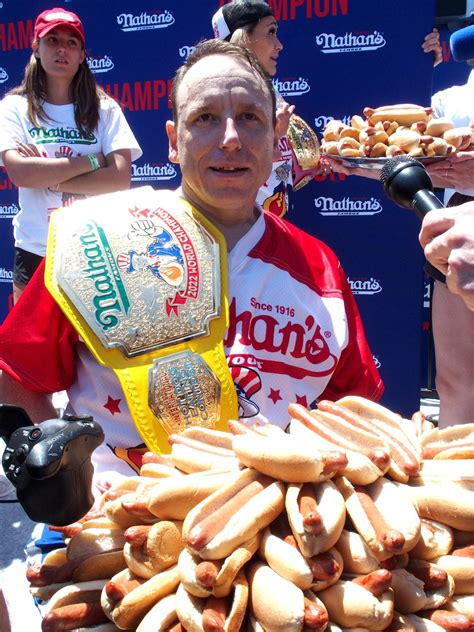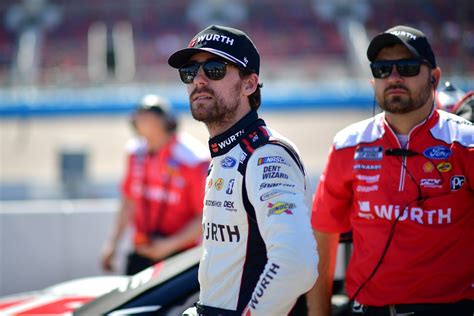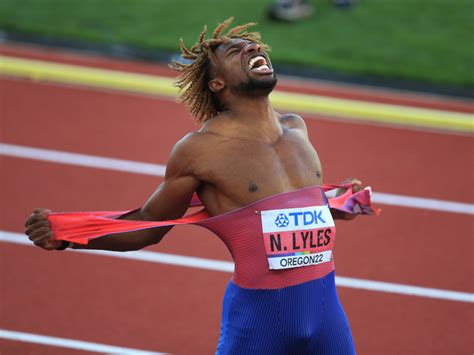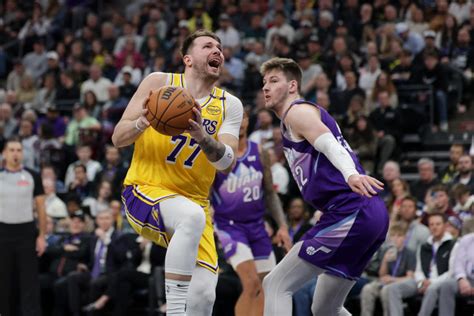
Joey “Jaws” Chestnut, sidelined from this year’s Nathan’s Famous International Hot Dog Eating Contest due to a sponsorship conflict with vegan hot dog brand Impossible Foods, has vowed to return to competitive eating, declaring he was “gutted” by Nathan’s decision and promising to find a way back to the Coney Island stage. Chestnut expressed his disappointment, stating, “To my fans, I love you and appreciate you. Rest assured that you’ll see me eat again soon!! STAY HUNGRY!”
Joey Chestnut’s reign as the undisputed hot dog eating champion has been temporarily halted after a disagreement with Nathan’s Famous over his endorsement deal with Impossible Foods, a rival company producing plant-based meat alternatives. This unexpected development throws a wrench into the annual July 4th tradition, leaving fans and fellow competitors stunned.
The controversy stems from Chestnut’s decision to align himself with Impossible Foods, a move that Nathan’s Famous viewed as a direct conflict of interest. While specific details of Chestnut’s contract with Nathan’s remain confidential, the company released a statement explaining their position. “We love Joey and support him in any contest he chooses. It is OK for him to work with other brands, just not a direct competitor of ours,” Nathan’s explained. They further stated that they were unwilling to compromise their brand integrity by allowing Chestnut to promote a competing product while simultaneously representing Nathan’s.
Chestnut, who has dominated the hot dog eating contest for nearly two decades, expressed his dismay over the situation. “I was gutted to learn I’m not allowed to compete,” he said in a statement. He emphasized his love for the contest and his dedication to his fans, promising to find a solution that would allow him to return to the Coney Island stage.
This year’s Nathan’s Famous International Hot Dog Eating Contest will proceed without Chestnut, marking a significant change in the landscape of competitive eating. While other contenders will undoubtedly step up to challenge for the coveted Mustard Belt, Chestnut’s absence will be keenly felt by fans and organizers alike. The future of Chestnut’s participation in the contest remains uncertain, but he has made it clear that he intends to explore all options to ensure his return.
Background to the Controversy
Joey Chestnut has been the face of competitive eating, particularly the Nathan’s Famous Hot Dog Eating Contest, for years. His dominance is unparalleled, with 16 victories under his belt. The annual July 4th spectacle at Coney Island has become synonymous with his name, attracting massive crowds and media attention.
The conflict arose when Chestnut entered into an endorsement deal with Impossible Foods. Impossible Foods has been making strides in the plant-based food industry, offering alternatives to traditional meat products, including hot dogs. This posed a problem for Nathan’s Famous, which views Impossible Foods as a direct competitor.
The decision to exclude Chestnut from the contest highlights the growing tension between traditional food companies and the burgeoning plant-based sector. As more consumers seek out alternatives to meat, companies like Impossible Foods are gaining market share, disrupting the established order in the food industry. Nathan’s Famous, a company with a long and storied history, is understandably protective of its brand and market position.
The Implications for Nathan’s Famous
Chestnut’s absence undoubtedly impacts Nathan’s Famous. His presence at the contest has been a major draw, attracting viewers and generating significant media coverage. The annual event is a marketing bonanza for the company, boosting brand awareness and driving sales. Without Chestnut, the contest may lose some of its luster.
However, Nathan’s Famous is standing firm on its decision, prioritizing its brand integrity over the star power of Joey Chestnut. The company believes that allowing Chestnut to promote a competing product would send the wrong message to consumers and undermine its own marketing efforts.
Nathan’s Famous has a long and storied history, becoming an American icon synonymous with hot dogs and summertime. Founded in 1916 by Polish immigrant Nathan Handwerker, the original Coney Island stand quickly gained popularity for its delicious hot dogs made with a secret spice blend. Over the decades, Nathan’s expanded its menu and footprint, establishing itself as a beloved brand known for quality and tradition. The annual hot dog eating contest, which began in the early 1970s, has become a cultural phenomenon, drawing crowds and media attention worldwide. It is a significant marketing event that reinforces the brand’s image and connects with consumers on a national and international stage. The company has successfully leveraged its history and the allure of Coney Island to cultivate a strong brand identity.
The Competitive Eating Landscape Without Chestnut
With Chestnut out of the picture, the field is open for other competitive eaters to stake their claim. Names like Geoffrey Esper, James Webb, and Miki Sudo are likely contenders to watch. Esper, in particular, has been a consistent challenger to Chestnut in recent years, and this year could be his chance to finally take home the Mustard Belt. James Webb has also shown considerable skill and determination. The women’s competition will also be closely watched, with Miki Sudo aiming for another victory.
However, it is undeniable that Chestnut’s absence changes the dynamics of the contest. He is not only a skilled eater but also a charismatic performer who captivates audiences. His absence will be felt by fans and fellow competitors alike.
The contest itself will likely be different this year. With Chestnut absent, the strategies employed by other competitors may shift. Some may see this as an opportunity to push themselves harder, while others may feel the pressure of filling the void left by the reigning champion. The level of media attention may also be affected, although the contest remains a popular event regardless.
The Future for Joey Chestnut
Chestnut has made it clear that he intends to continue his competitive eating career. He has vowed to find a way back to the Nathan’s Famous Hot Dog Eating Contest, but he has also indicated that he is open to exploring other opportunities. He stated that his fans would “see me eat again soon!!”
It is possible that Chestnut could negotiate a resolution with Nathan’s Famous that would allow him to compete in future contests. Alternatively, he could focus on other competitive eating events or explore other endorsement deals. Whatever he chooses to do, it is clear that Chestnut remains a force to be reckoned with in the world of competitive eating. He has built a strong brand for himself and has a loyal following of fans who will continue to support him.
The competitive eating community is closely watching how this situation unfolds. Many believe that Chestnut’s absence is a loss for the sport, but they also recognize the importance of respecting brand partnerships and avoiding conflicts of interest. The coming months will be crucial in determining the future of Chestnut’s career and the landscape of competitive eating.
The Broader Implications
This controversy underscores the growing importance of brand partnerships and the potential for conflicts of interest in the world of sports and entertainment. Athletes and celebrities are increasingly sought after by companies seeking to promote their products and services. However, these endorsements can sometimes create complications, particularly when they involve competing brands.
The Chestnut-Nathan’s Famous situation serves as a reminder of the need for clear and comprehensive contracts that outline the rights and responsibilities of both parties. It also highlights the importance of open communication and a willingness to compromise in order to resolve potential conflicts.
Furthermore, this situation reflects the evolving food industry, with the rise of plant-based alternatives challenging traditional food companies. As more consumers embrace these alternatives, companies like Nathan’s Famous will need to adapt and innovate to maintain their market position. This may involve developing their own plant-based products or finding other ways to appeal to health-conscious consumers.
The Public Reaction
The news of Chestnut’s ban from the Nathan’s Famous Hot Dog Eating Contest has generated a significant reaction from the public. Many fans have expressed disappointment and outrage, accusing Nathan’s Famous of being unfair to Chestnut. Others have defended the company’s decision, arguing that it is within its rights to protect its brand.
Social media platforms have been flooded with comments and opinions on the controversy. Many fans have expressed their support for Chestnut, using hashtags like #FreeJoey and #LetJoeyEat. Others have criticized Chestnut for aligning himself with a competing brand.
The controversy has also been widely covered by the media, with news outlets across the country reporting on the story. The situation has become a topic of discussion on talk shows and news programs, further amplifying the public’s awareness of the issue.
The Impact on Competitive Eating
The impact of Chestnut’s absence on the world of competitive eating remains to be seen. Some believe that it could lead to a decline in the sport’s popularity, while others argue that it could create an opportunity for new stars to emerge.
It is undeniable that Chestnut has been a dominant force in competitive eating for many years. His skill and charisma have helped to attract a wider audience to the sport. Without him, the contest may lose some of its appeal.
However, the absence of a reigning champion can also create excitement and anticipation. Other competitive eaters may see this as their chance to shine, pushing themselves to new limits in order to claim the coveted title. The situation could also lead to increased media coverage and public interest as fans tune in to see who will emerge victorious.
Possible Scenarios and Outcomes
Several scenarios could play out in the coming months:
- Negotiated Resolution: Chestnut and Nathan’s Famous could reach a compromise that allows him to compete in future contests. This could involve limiting his endorsement of Impossible Foods or finding other ways to address Nathan’s concerns.
- Continued Ban: Nathan’s Famous could maintain its ban on Chestnut, preventing him from competing in the contest for the foreseeable future. This would likely lead to continued controversy and disappointment among fans.
- Chestnut Competes Elsewhere: Chestnut could focus on other competitive eating events, showcasing his skills and entertaining his fans in different venues. This could potentially lead to the growth of other competitive eating circuits.
- Legal Action: Chestnut could pursue legal action against Nathan’s Famous, arguing that the company’s decision is unfair or violates his contract. However, this is unlikely, as it would likely be a costly and time-consuming process.
Conclusion
The controversy surrounding Joey Chestnut’s ban from the Nathan’s Famous Hot Dog Eating Contest is a complex issue with significant implications for the competitive eating world and the broader food industry. The situation highlights the importance of brand partnerships, the potential for conflicts of interest, and the evolving landscape of the food industry.
While the future of Chestnut’s participation in the contest remains uncertain, one thing is clear: he remains a popular and influential figure in the world of competitive eating. His fans will undoubtedly continue to support him, regardless of what he chooses to do. The 2024 Nathan’s Famous Hot Dog Eating Contest will proceed without its most famous competitor, marking a significant shift in the event’s dynamic and raising questions about the future of Chestnut’s career and the sport itself. The outcome of this situation will undoubtedly have a lasting impact on competitive eating and the relationship between athletes and their sponsors. The future of competitive eating with and without Chestnut continues to be a developing story.
Frequently Asked Questions (FAQ)
-
Why was Joey Chestnut banned from the 2024 Nathan’s Famous Hot Dog Eating Contest?
Joey Chestnut was banned due to a conflict with Nathan’s Famous over his endorsement deal with Impossible Foods, a vegan hot dog brand and a direct competitor to Nathan’s. Nathan’s felt that Chestnut promoting a competing product while representing their brand created a conflict of interest.
-
What did Joey Chestnut say about being banned from the contest?
Chestnut expressed his disappointment, stating, “I was gutted to learn I’m not allowed to compete,” and “To my fans, I love you and appreciate you. Rest assured that you’ll see me eat again soon!! STAY HUNGRY!” He emphasized his love for the contest and his dedication to his fans, promising to find a solution that would allow him to return.
-
Will the Nathan’s Famous Hot Dog Eating Contest still take place without Joey Chestnut?
Yes, the Nathan’s Famous International Hot Dog Eating Contest will proceed as planned on July 4th, but without Joey Chestnut. Other competitive eaters will compete for the Mustard Belt.
-
Who are some of the other competitive eaters who might compete for the championship in Chestnut’s absence?
Potential contenders include Geoffrey Esper, James Webb, and Miki Sudo (in the women’s competition). Esper has been a consistent challenger to Chestnut, and Sudo has dominated the women’s division.
-
What does this situation say about the relationship between athletes and sponsors?
This situation underscores the importance of clear contracts and communication between athletes and sponsors, especially when dealing with competing brands. It also highlights the need for athletes to be aware of potential conflicts of interest when entering into endorsement deals.
-
What does Nathan’s Famous say about Joey Chestnut?
Nathan’s Famous said that they “love Joey and support him in any contest he chooses. It is OK for him to work with other brands, just not a direct competitor of ours,” clarifying they were unwilling to compromise their brand integrity.
-
What alternative did Nathan’s propose to Chestnut?
Although it wasn’t explicitly stated what alternatives were proposed, it’s implied Nathan’s wanted Chestnut to choose between endorsing Impossible Foods and participating in their contest, suggesting they weren’t willing to allow both simultaneously.
-
How long has Joey Chestnut been competing in the Nathan’s Hot Dog Eating Contest?
Joey Chestnut has dominated the hot dog eating contest for nearly two decades and has 16 victories.
-
When did Nathan Handwerker found Nathan’s Famous?
Nathan Handwerker, a Polish immigrant, founded Nathan’s Famous in 1916.
-
How does the absence of Chestnut impact Nathan’s Famous?
Chestnut’s absence will undoubtedly affect Nathan’s Famous. His presence at the contest has been a significant draw, attracting viewers and generating substantial media coverage.
-
How has the public responded to the situation?
The news of Chestnut’s ban has generated a significant reaction from the public. Many fans have expressed disappointment and outrage, accusing Nathan’s Famous of being unfair to Chestnut. Others have defended the company’s decision, arguing that it is within its rights to protect its brand.
-
What could Chestnut do next?
Chestnut has made it clear that he intends to continue his competitive eating career. He has vowed to find a way back to the Nathan’s Famous Hot Dog Eating Contest and indicated that he is open to exploring other opportunities.
-
Is it possible for Chestnut to compete in other similar competitions?
Yes, Chestnut can participate in other competitive eating events. The article mentioned the possibility of Chestnut focusing on other competitive eating events, showcasing his skills and entertaining his fans in different venues.
-
Has the rise of plant-based alternatives played a part in this conflict?
Yes, the conflict is reflective of the evolving food industry, with the rise of plant-based alternatives challenging traditional food companies. As more consumers embrace these alternatives, companies like Nathan’s Famous need to adapt and innovate to maintain their market position.
-
Can Joey Chestnut pursue legal action against Nathan’s Famous?
Chestnut could pursue legal action against Nathan’s Famous, arguing that the company’s decision is unfair or violates his contract. However, this is unlikely, as it would likely be a costly and time-consuming process.
-
How did the first Nathan’s Hot Dog Eating Contest begin?
The contest supposedly began in the early 1970s, although the exact origins are debated, as a publicity stunt and has grown into a cultural phenomenon.
-
How is Impossible Foods viewed by Nathan’s Famous?
Nathan’s Famous views Impossible Foods as a direct competitor.
-
What will change at the contest this year due to Chestnut’s absence?
The dynamics of the contest will change. With Chestnut absent, the strategies employed by other competitors may shift. Some may see this as an opportunity to push themselves harder, while others may feel the pressure of filling the void left by the reigning champion. The level of media attention may also be affected.
-
How could the brand integrity of Nathan’s be compromised in this situation?
Nathan’s Famous may have perceived that allowing Chestnut to promote a competing product while simultaneously representing Nathan’s would send the wrong message to consumers and undermine its own marketing efforts.
-
What are people saying about the situation on social media?
Social media platforms have been flooded with comments and opinions on the controversy. Many fans have expressed their support for Chestnut, using hashtags like #FreeJoey and #LetJoeyEat. Others have criticized Chestnut for aligning himself with a competing brand.









